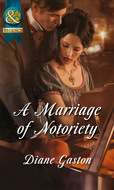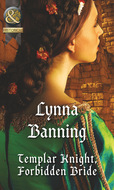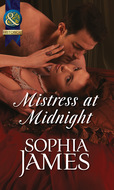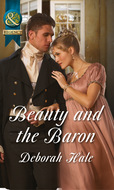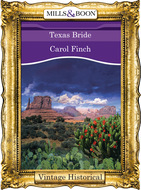Kitap dosya olarak indirilemez ancak uygulamamız üzerinden veya online olarak web sitemizden okunabilir.
Kitabı oku: «Captive Of The Viking»
Taken in revenge!
Aric the Ruthless is consumed by his need for vengeance. And so he takes his enemy’s widowed daughter, Lady Fearn, as his slave... His fiery captive may fight him at first, but he knows he will soon tempt her into his bed!
Fearn’s marriage brought her only fear and pain, but powerful Viking Aric is nothing like her cruel husband. And as her captor’s seduction awakens her to new sensations, dare she hope this ferocious warrior could become the husband she deserves?
‘This,’ he said softly, ‘will be good. Here we have peace and privacy, and time for you to discover things you could not have imagined.’
‘You are arrogant!’ she whispered.
‘Sure of myself, yes, and sure of you too. I doubt you’ve ever been told that you’re the loveliest woman in all England. But I’ve seen how men’s eyes follow you.’
‘Lust. That’s all.’
‘Let go of your anger. This is more than simple lust. I want you because you’re a match for me. Courageous, fierce, passionate, impetuous. You have the body of a goddess, made for loving, and I can give you pleasure if only you’ll allow it. Let me show you.’
Author Note
Whilst I am interested in most periods of British history, I find the overlapping of the early Celtic, Viking and Anglo-Saxon eras particularly fascinating. It is not the violence, battles and bloodshed that intrigue me most, but the position of women in those societies. They were obliged to balance their own desires and needs against those of husbands, fathers, the decrees of society, the King and religion. The constraints must have been enormous and yet we know there were women who managed to make things work in their favour.
This is why I like to make my heroines women who rise above the difficulties in which they find themselves, become stronger as a result, and find love in the most unlikely circumstances. After all, to most British women there can be few more unlikely circumstances than being caught up in a series of conflicts as world-changing as those between the tenth-century Anglo-Saxons and the Vikings of Denmark.
My story may be a work of fiction, but I believe there must have been situations not unlike this one which did not claim the attention of the chroniclers. I like to think that in this small way I am redressing the balance.
Captive of the Viking
Juliet Landon

JULIET LANDON has a keen interest in art and history—both of which she used to teach. She particularly enjoys researching the early medieval, Tudor and Regency periods, and the problems encountered by women in a man’s world. Born in North Yorkshire, she now lives in a Hampshire village close to her family. Her first books, which were on embroidery and design, were published under her own name of Jan Messent.
Books by Juliet Landon
Mills & Boon Historical Romance
At the Tudor Court
Betrayed, Betrothed and Bedded
Taming the Tempestuous Tudor
Stand-Alone Novels
The Widow’s Bargain
The Bought Bride
His Duty, Her Destiny
The Warlord’s Mistress
A Scandalous Mistress
Dishonour and Desire
The Rake’s Unconventional Mistress
Marrying the Mistress
Slave Princess
Mistress Masquerade
Captive of the Viking
Collaboration with the National Trust
Scandalous Innocent
Visit the Author Profile page
at millsandboon.co.uk for more titles.
MILLS & BOON
Before you start reading, why not sign up?
Thank you for downloading this Mills & Boon book. If you want to hear about exclusive discounts, special offers and competitions, sign up to our email newsletter today!
Or simply visit
Mills & Boon emails are completely free to receive and you can unsubscribe at any time via the link in any email we send you.
Contents
Cover
Back Cover Text
Introduction
Author Note
Title Page
About the Author
Chapter One
Chapter Two
Chapter Three
Chapter Four
Chapter Five
Chapter Six
Chapter Seven
Chapter Eight
Chapter Nine
Chapter Ten
Epilogue
Author Afterword
Extract
Copyright
Chapter One
The year 993—Jorvik, now known as York
Even at that early hour of the day, a dense pall of smoke lay over the thatched rooftops of Jorvik like a grey blanket filtering upwards into the haze of dawn. The furnace was already roaring from the blacksmith’s workshop, from the glassmakers and potters, the bakers and the moneyer, whose task was no less exacting than the swordsmith’s. The Lady Fearn and her young maid, Haesel, kept to the path on the outer edge of the city and soon came to the river from where, for safety, the merchants’ ships had been moored upriver well away from the main wharves and the warehouses. They rocked gently on the brown water as the ferryman pulled his boat into the bank just as the two women reached it.
‘Morning, lady,’ he called. ‘You not taking the bridge, then?’
The bridge over the River Ouse was close by the wharves, now deserted in readiness for a fleet of Viking longships that had been reported entering the Humber Estuary two days ago. The merchant ships would be an obvious target. Fearn chose not to answer him. ‘Can you take us across, Gaut?’ she said. ‘We’re bound for Clementhorpe.’
Last evening, she and Haesel had put the last few stitches into a pile of linen smocks for the invalids at the little nunnery where frail and elderly townsfolk were nursed through their illnesses by twelve devoted Benedictine nuns. As the foster daughter of Earl Thored of Northumbria, Fearn did not intend an imminent Viking raid to prevent her acts of charity.
* * *
The nunnery at Clementhorpe was little more than a cluster of thatched huts, animal sheds, a larger infirmary and a church with a shingled roof situated on the very edge of Jorvik. The dense woodland sheltered pigs beyond the plots where two cows and their calves grazed, where an orchard, herb garden and neat rows of vegetables were tended by soft-spoken women in serviceable long kirtles of undyed wool. Their noble birth counted for very little here, all of them being known as ‘sister’ except Mother Bridget, the founder of the nunnery.
‘Welcome, my dears,’ she said, taking the bundles from them. ‘This is so kind of you. I hope, my lady, the Earl doesn’t mind your coming here so often.’ Her voice held an Irish lilt that set all her words to music.
Fearn smiled at her concern. Earl Thored had been baptised as a Christian, but found it difficult to shake off the advantages offered by his former paganism, believing that to call on the services of several well-tried-and-tested gods was of great help in times of emergency. The priest had done what he could to explain the meaning of sin, but so far without an unqualified success. ‘He doesn’t mind at all, Mother,’ Fearn said, following the nun into the warm interior of one of the larger houses. A fire glowed in a central hearth and two nuns stood over by one wall, working at a large upright loom taut with white woollen threads, their hands working in unison, lifting, beating, passing the shuttle. ‘He has other things on his mind,’ she added. ‘Messengers are reporting to him day and night since the Danes were sighted.’
‘He’s sure they’re Danes, then? Not Norse?’ She indicated cushioned stools and went to a bench from where she poured buttermilk into three earthenware beakers. Handing one to Fearn, she could not help but look directly at Fearn’s beautiful features: the thick black curls escaping from the white veil and gold circlet, at the black eyelashes and brows that framed her most unusual feature, her eyes, one of which was a deep mossy green, the other as blue as a bluebell. She would have been uncommonly lovely even without this strangeness, but with it, her beauty was like a magnet that held the gaze of anyone who looked on her.
Mother Bridget had hoped she would come this morning, having spent the night in prayer for her safety. One look at the woman would put her in mortal danger, for the Vikings, Danes and Norse, were renowned for their unbridled ferocity towards women. Fearn and Haesel would stand no chance against them.
‘Sure to be Danish,’ Fearn said after a sip of the cool liquid. ‘Swein Forkbeard’s men. Coming for another pay-off. He’ll not damage Jorvik again when more than half the city is made up of his own people, will he? I doubt they’ll be doing much raiding this time, Mother.’
The Reverend Mother put her beaker to one side, only her years of discipline preventing her from showing her fear. She had, after all, lived close to fear for most of her life. ‘Fearn,’ she said, as emphatically as her musical voice would allow. ‘Listen to me.’
‘I always do, Mother.’
‘Yes, but this is especially important, my dear. Whatever these men are coming for, we women are in some danger and you more than any of us. You must know what I mean. It’s taken our little community years to recover after the last time, but I refuse to run away, for then what would happen to those we care for? But if you’re right about them coming only for payment to cease their raiding, then I still believe the safest place for you and Haesel would be out there in the woods, hiding until they’ve gone. Once you show your faces in the Earl’s hall, they will want you as well as money. Stay here out of the way, I beg you.’
It was difficult for Fearn not to be moved by Mother Bridget’s concern. Such fear for her welfare was rarely shown these days, particularly not by Fearn’s husband, Barda, one of her foster father’s chosen warriors. A boastful, swaggering bully of a man, he had adopted the new Christian religion only in order to marry her, not for any other reason. Yet Fearn used his name now in the hope of persuading her blessed hostess of a better protection, knowing how he would put up a fight to protect anything that was his. Even his horse. ‘I am grateful to you, Mother. Truly I am. But I will not hide like a fugitive when there are so many of the Earl’s men to protect me. And Barda. He would not allow them to take me. Whatever else he is capable of, he would prefer not to lose me. Please stop worrying.’
Even as she said his name, all three women’s minds turned to what else he was capable of. Violence towards his wife, for one thing. Mother Bridget had seen the weals on Fearn’s body when she’d come here for treatment. Love was not something Fearn had ever felt for a man and Barda did not know the meaning of the word.
A reluctant sigh left Mother Bridget’s wrinkled lips along with a shake of her head. ‘Well,’ she said, softly, ‘I didn’t really expect you to agree, my dear. Is there nothing I could say that might persuade you?’
‘I could leave Haesel with you, being so young.’
‘Thank you, but, no!’ Haesel said, suffering two surprised stares. ‘I’m sorry, mistress, but I shall not leave you. The Reverend Mother must know that.’
‘Of course I do, child. Lady Fearn knows it, too. Let’s just hope her possessive husband is as loyal as you are. Does he know you’ve come here? Last time, you were in some trouble, I remember.’
Fearn smiled, ruefully. ‘The Earl sent him off with two others to find out what they could. They’ll be following the river up towards the coast. They may even have returned by now with some news.’
‘In which case, love, you had better drink up and head back to the hall. And think again about what I’ve said. You’ll get no better advice.’ Especially, she thought, from that obnoxious pair, Fearn’s mother-in-law and her foster mother, neither of whom had displayed any motherly traits towards Fearn, whose entry into their lives was a constant source of jealousy. ‘I’ll come with you as far as the river,’ she said, taking their empty beakers.
* * *
The River Ouse flowed deep and wide past the end of the nunnery’s orchard on its way to the Humber Estuary and the North Sea. Usually so clamorous with men’s shouts, dogs barking, the clang of hammers and children’s squealing, the river path opposite the workshops seemed eerily quiet as if the city were holding its breath. Haesel had stopped on the track and was facing in the wrong direction, towards the sun, now well risen but hazy, her body rigid with apprehension. ‘What is it?’ Fearn called. ‘You see something?’
‘Smell,’ Haesel said without turning round. ‘Can you smell it?’
Fearn and Mother Bridget lifted their heads to sniff. ‘Smoke,’ they whispered. ‘That’s not Jorvik smoke.’ Their eyes strained into the distance where lay several small villages along the banks of the river where plumes of white and dark grey smoke rose almost vertically into the sky pierced by sharp spears of flame. ‘It’s them!’ Fearn said. ‘Oh, may God have mercy on us. They are raiding. They’ll be here in no time at all. We must run. Warn Earl Thored. Quick! Run! Mother Bridget...go back! Go!’
The elderly nun balked, fearful not for herself but for the two lovely women who now seemed closer than ever to her worst predictions. ‘Fearn, please come back with me...don’t go...be one of us...hide in the woods...it’s safer...’ The two, old and young, clung together, parted and clung again.
‘No, Mother. They’ll not ravage the city again. Now, go quickly. I’ll send a message when they’ve gone. Hurry!’ she called, already running with Haesel towards the ferry. ‘May God protect you.’
But Mother Bridget did not run and, as Fearn looked back to see, she was standing on the path with both hands holding her head. The masts of the boats would soon be seen rounding the bend of the river—that was certain.
Expecting Gaut to be manning the ferry, as before, they were horrified to see that he had deserted it, though fortunately the boat was on their side of the river. They took an oar each, fumbling and rattling them in the rowlocks to bring them into some kind of unison which, in more normal circumstances, would have made them double up with helpless laughter. But not this time, for the current was strong enough to push the boat further down the bank than the jetty, making it impossible for them to clamber out without wading up to their knees in muddy water. Their walk along the path up to that corner of the city known as Earlsbrough, where the great Hall of the Earls was situated, was by no means as dignified as their exit had been one hour earlier. And to make matters worse, their arrival through a small opening in the enclosure was seen and intercepted by her two most critical relatives, horrified to see the two muddy young women with wet gowns clinging to their legs. Catla, her mother-in-law, and Hilda, her foster mother, wife of Earl Thored.
Having been advised more than once by the priest that a little subservience in her manner towards these two would not come amiss, on occasion, Fearn decided that now was not the time, with a Viking raid imminent. ‘Yes...yes, I know,’ she said to Catla, ‘but never mind the mess. Where is Earl Thored? There are raiders coming up the river and they’re not far away. Is he in the hall?’
‘If you mean the Danes,’ Catla said, icily, ‘your foster father has already been informed, so there was no need for you to act the heroine and be the first to tell him so. The situation is well under control.’ Her lined face registered a cold dislike of her daughter-in-law.
‘He knows?’ Fearn said. ‘Then Barda has returned?’
‘No, he has not, yet. But when he does, he’d better not see you looking like that, had he? Now I suggest you go inside and get that maid of yours to earn her keep and tend you, instead of playing silly water games. I have a mind to have her whipped.’
‘You’ll do no such thing, Catla. She probably saved me from drowning.’
With looks of deep disapproval, Catla and Hilda turned away, but not before making sure that Fearn heard Catla’s parting shot. ‘Pity,’ she muttered.
Fearn had never been under any illusions about the woman’s hostility towards her, but this undisguised malice stung, especially when women were expected to support and comfort each other in times of crisis. All the same, she could hardly subdue a leap of guilty relief at the news of Barda’s continued absence. The longer he took to do his scouting, the easier she would feel, but she refused to imagine what might be the reason, for that was a dangerous path to tread.
Waiting until the two older women were out of sight, Fearn went directly to the great hall where Earl Thored would give her the latest news. Her skirts still clung to her legs and her bootees squelched on the wooden floor as she approached, though her efforts not to attract attention to herself were rarely successful. For one thing, few women were allowed to take part in any discussion unless they had a role to play and, for another thing, so many of the Earl’s men desired her that it was asking too much of them not to be affected by her presence, dripping wet or not.
The great hall was by far the largest hall in Jorvik, even larger than the wooden church of St. Peter nearby. Massive wooden pillars held up the roof beams carved with grotesque faces and interlace patterns, the walls almost entirely covered with colourful embroidered hangings, with weapons, shields and polished helmets, decorative but functional, too. Earl Thored half-sat on the edge of a trestle table surrounded by some of his personal thegns, men of property, influence and loyalty, well dressed and well-armed. Their deep voices overlapped, but Thored’s was the one they listened to, authoritative and compelling. ‘I tell you,’ he was saying as Fearn approached, ‘they’ll not raid Jorvik this time. It’s wealth they’re after, not our land or property.’
‘But, my lord,’ one of the men protested, ‘they’re burning already. Why would they do that to the villages and not here?’
‘To show us what we’ll get if we don’t pay them off,’ Thored said as if he’d already made that point. ‘Scaring tactics. They’ll be looking for provisions, too. But I shall not bargain with them like a common merchant on the wharf. They must come up here if they want payment. They can carry it down to the ships themselves. Is Arlen the Moneyer here?’
‘Here, my lord,’ said Arlen from the back of the group.
‘Good. Start filling sacks with coin, then have it brought here.’
‘How many...how much?’
‘In Thor’s name, man!’ Thored shouted. ‘How do I know? Just prepare for the worst. These devils won’t go away without fleecing us for every last penny—that much I do know. Get that young lad of yours to help. He’ll have to learn the new way of fighting, though I’m ashamed to see them off in this fashion. I’d rather do it with a sword in my hand, but we don’t have their numbers and that son-in-law of mine hasn’t yet made up his mind how to deal with the problem.’ There were murmurs of agreement and dissatisfaction, too, but no open criticism of King Ethelred’s wavering policies, apart from that of his father-in-law. Then Thored caught sight of Fearn standing beside one of the oak pillars. ‘Ah, Lady Fearn, you’ll be wanting to hear news of your man. I’m as puzzled as you are. It doesn’t usually take three men two days to glean some news of the enemy. Well, we don’t need them now when we can see for ourselves where they are and what they’re doing. He’ll be back. Don’t worry.’
‘Thank you, my lord. I shall stay well out of sight until then,’ she said, turning to go.
‘No, I want you here. You can add some colour to the discussions, eh? Ye gods, woman! Where have you been?’ he bellowed, catching sight of her lower half as the group parted.
‘The ferry, my lord. Gaut was not there to row us. My maid and I—’ She got no further with her explanation before her voice was drowned by politely sympathetic laughter tinged with a masculine superiority in matters of river craft.
Pushing a fist beneath his moustache to stifle his laughter, Thored’s blue eyes creased into the weathered wrinkles of his skin. ‘Then you’d better go and change into something more worthy of a noblewoman, my lady. The Danes will not have anything as good to show us, I’ll swear. Go by the kitchens and tell them to prepare mead, beor and ale for us and our guests. The least we can do is to drink them legless.’ Unconsciously, his large hand stole upwards to grasp the solid-silver Thor’s-hammer pendant that hung from a leather thong around his neck. ‘Now, I need three of you to go down to the wharf and wait, then escort their leaders up here. And where’s the harpist? And the scribe? Let’s show the ruffians some culture while we’re about it.’
* * *
Passing the kitchen building, Fearn relayed the Earl’s orders, knowing that on her next entry into the hall, an army of servants would have attended to every detail, relying on his word that the Danes would be there to bargain, not to wreck. Inside the confines of her own thatched dwelling, she found that Haesel had anticipated her needs, laying out an indigo-dyed woollen kirtle to be worn over a fine linen shift that showed at the neckline, wrists and hem. Fearn had worked gold thread embroidery along all the edges that glittered discreetly as she moved, picking up the deeper solid gold and amethyst of the circular pin that held the neckline together. Her circlet of patterned gold and garnets was one of several she owned, but when she asked Haesel to pass her jewel casket, she discovered that it had been packed, along with extra clothes and shoes in a lined leather bag, the kind used for travelling. ‘What’s this about?’ she asked her maid.
Haesel sat down on the fur-covered bed and looked pensively at her mistress, obviously finding it difficult to give a convincing explanation.
‘Haesel? Have you been seeing things again?’ Fearn said. ‘Tell me.’
‘It’s not easy to know what I see and what I think I see, lady. I don’t know what it means, but we were travelling, and there was a strong wind...blowing...you needed your cloak, but you were wearing the one you made for your husband. So I packed...well...everything I thought you’d need...and...’
‘Wait a moment! You say I’m wearing Barda’s new cloak? But he’s taken it with him.’
‘Yes, lady. That’s what I don’t understand. Unless he allows you to wear it.’
Fearn looked at her maid in silence. As a mere sixteen-year-old, she had served Fearn for the last four years when her family’s house caught fire. Her father had been a potter on Coppergate, but the kiln had exploded and Haesel had been the only one to survive, albeit with severe burns to one arm and the side of her throat. Her mass of fair curls had now grown back and the sweet prettiness of her features more than compensated for the wrinkled red skin that she usually managed to hide under the white veil swathed around her neck. Fearn had soon discovered that Haesel possessed a strange talent for seeing into the future, though it was often rather difficult to make out how the information related to events, as it did now when Barda’s cloak was not in Fearn’s possession. By now, however, Fearn had learnt to take the predictions seriously, although they were both enigmatic and quite rare. ‘So what have you packed, and where shall we be going?’ she said.
‘Your jewels, clothes, shoes, your recipe book of cures. I couldn’t get your harp in. I know nothing about where we’ll be going, lady. Just the wind blowing.’
‘Then we shall just have to see what happens. Was my husband there?’
Haesel shook her head. ‘No, lady. He was not with you.’ It happened occasionally that she withheld information she thought either too unreliable or not in her mistress’s best interests to know in advance. There had been many men there in her sighting, but Barda had not been amongst them.
* * *
The Dane known as Aric the Ruthless had hardly expected that the four longships in his command would be able to slip into Jorvik unseen, even so early in the morning with the sun obscured by clouds of smoke rising up from the riverside villages. His men had needed to take provisions on board after rowing against the current all the way from the river estuary, and since it took too long to ask politely for foodstuffs, they had taken it without asking. Coming to the last navigable bend of the Ouse, Aric noticed that the trading wharves and jetties were devoid of merchant ships and the stacks of produce that usually littered the area. The only sign of life was a small group of armed men waiting, grim-faced, to meet them. So, the Earl of Northumbria had come with his elite corps to conduct him, personally, to the place known as Earlsbrough.
Their greeting was civil, though hardly warm. One warrior drew his sword from his scabbard, catching the light on its menacing blade. But as Aric stepped off the gangplank, he called to him to put it away. ‘We have come here to talk,’ he called. ‘Which of you is the Earl?’
‘The Earl of Northumbria awaits you in his hall,’ the leader said. ‘He prefers not to trade with you for Jorvik’s safety here on the wharf like a merchant. Be pleased to come with us.’
‘What, and be surrounded by Englishmen?’ Aric said.
‘Bring as many men as you wish, Jarl.’
* * *
The walk took a little time, though they soon discovered that their Danish words so much resembled the Anglo-Danish spoken in Jorvik that there were very few misunderstandings. Adjusting the beaver-skin cloak on his broad shoulders, Aric walked with his hosts and a group of his own chosen men through the deserted dirty streets of Jorvik to the mournful cry of seagulls and the yapping of dogs chasing an escaped pig. The air was tense with uncertainty, for the rank odour of smoke still clung to the invaders’ clothes. None of them were under any illusions that the show of politeness would last, for at the nod of a head or the click of a finger, they could all slaughter one another without a qualm.
Earl Thored stood waiting outside the stout wooden doors of the great hall, unmistakable to Jarl Aric by his imposing figure, tall, broad-shouldered, with a shock of thick white hair echoed in the luxurious drooping moustache, an exceptionally handsome man of some fifty years, and experienced. He greeted Aric with a brief nod, noting the Dane’s appreciative look at the fine carvings on the doors and crossed gables. ‘Not so different in Denmark, I don’t suppose,’ he said, leading them into the hall.
‘The same in most respects, my Lord Thored. Our requirements are the same as yours.’
‘Our requirements, Jarl, are for peace above anything.’
‘Then we have that in common,’ said Aric, determined not to be wrong-footed by the older statesman. ‘I see no reason why we cannot agree on that. Eventually.’
Thored’s look held an element of scepticism for the Dane who had just led a series of raiding parties along the East Anglian coast. The ‘eventually’ was something that would demand hard bargaining, with no guarantee that the Danes would not return for more next year, as soon as the days lengthened. But his look was also laced with an unwilling admiration, not only for this man’s youth compared with his own, but for his undeniable good looks, which Thored was sure would have the women enthralled. More used to looking down upon his men, Thored found that their heads were level and that the Dane’s keen grey eyes had already swept the hall in one observant stare, as if to assess the wealth contained there.
In the yellowish light from lamps and candles, Aric’s hair shone sleek and pale, pulled tightly back from his face and gathered at the back into a short plait. A narrow gold band was set over his forehead, his sun-bleached brows and short neat beard emphasising the square jaw and determined set of his mouth, which Thored took as an indication that he would be no pushover. A chill crept along Thored’s arms and neck. Thirty years ago, he, too, had had this man’s arrogant stance, legs like tree trunks encased in leather breeches and a slender waist belted low down on slim hips. He, too, had made women blush like girls.
Aric’s thoughts on Earl Thored ran along similar lines with admiration for his elegant deep red tunic and the massive gold buckle at his belt, a sign of authority. Negotiations with this old fox, he thought, would have to proceed with care, for although the Danes’ demands would have to be met, one way or another, he had heard that Earl Thored was a man with more than one strategy up his sleeve. Other things he had heard about the Earl were less complimentary, things which would have to be addressed today while there was a chance. His king, Swein Forkbeard, had given him the task of taking four of the ninety-four longships up the coast to Jorvik to treat with Earl Thored on his behalf. Swein was also aware of Aric’s other mission which, although secondary to the business of Danegeld, was of great importance to his family’s honour. Aric himself might have only twenty-seven winters under his belt, but he was one of King Swein’s most trusted jarls, a military leader of numerous missions across the North Sea. He would make sure his name was remembered as a man who got what he came for.
Tipping his head towards his hovering wife, Thored beckoned her forward to begin her duties, showing the guests to their seats in order of precedence with no more to go on than their clothing and the number and size of gold armbands, pendants and cloak pins. Standing further back down the hall, Fearn held a flagon of red wine, waiting for the signal to begin pouring it. But her attention was instantly kindled as the Danish leader moved into the direct light of a lamp hanging from a low beam, casting its glow over the smooth back of his flaxen hair with its stubby plait resting on the beaver fur of his cloak. Clutching the flagon close to her body, she strained her eyes to search for the darker streak on the fur she knew so well, then for the band of red and green tablet-weaving in a zigzag pattern that bordered the hem. As he turned in her direction, she saw how the bands continued up the two front edges, and she knew without a shadow of doubt that he was wearing the beaver-fur cloak she had gifted to her husband only weeks ago on his feast day. Casually, he threw one side of the cloak over his shoulder to reveal the brown woollen lining that she had spun from the native sheep and woven on her loom after weeks of work. Barda had worn it, to her dismay, to go on this latest scouting expedition for the Earl only because the nights could still be cold this early in the year and because the beaver fur was brown, easily hidden in the woodland, waterproof and hard-wearing. Fearn knew that neither Catla nor Hilda would notice, but the revelation buffeted her like an icy blast of the north wind, rippling the surface of the wine in the flagon. Her body shook and she was unable to tear her eyes away from the evidence that must surely mean Barda had been taken or killed, for no man would willingly give his cloak to the enemy.
Ücretsiz ön izlemeyi tamamladınız.



